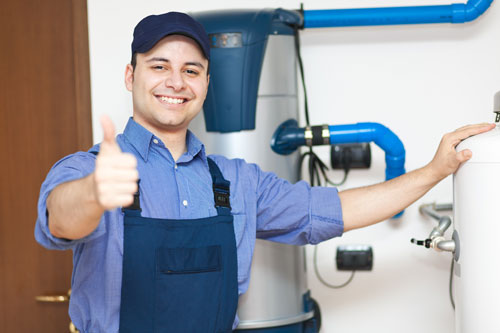Overcoming Common Water Heater Problems
Overcoming Common Water Heater Problems
Blog Article
Have you been hunting for information and facts around Common Problems with Your Home Water Heater?

Imagine beginning your day without your regular warm shower. That already sets a poor tone for the remainder of your day.
Every house needs a reliable water heater, yet just a few understand how to take care of one. One simple method to maintain your hot water heater in top shape is to look for faults frequently and also repair them as soon as they appear.
Remember to switch off your hot water heater before smelling about for faults. These are the hot water heater faults you are most likely to encounter.
Water too warm or also cold
Every water heater has a thermostat that identifies exactly how warm the water gets. If the water entering your residence is too warm in spite of setting a hassle-free maximum temperature level, your thermostat may be damaged.
On the other hand, also cold water might be due to a fallen short thermostat, a broken circuit, or inappropriate gas flow. As an example, if you make use of a gas hot water heater with a busted pilot burner, you would certainly obtain cold water, even if the thermostat is in best problem. For electrical heating systems, a blown fuse might be the wrongdoer.
Not enough hot water
Water heaters come in several dimensions, depending upon your hot water needs. If you lack hot water before everyone has actually had a bath, your hot water heater is also little for your family size. You should take into consideration mounting a bigger hot water heater storage tank or choosing a tankless hot water heater, which occupies less room as well as is much more sturdy.
Unusual sounds
There go to least five kinds of sounds you can learn through a water heater, but the most usual interpretation is that it's time for the water heater to retire.
To start with, you should know with the normal appears a hot water heater makes. An electric heating unit may sound different from a gas-powered one.
Popping or banging audios generally suggest there is a slab of sediment in your storage tanks, and it's time to cleanse it out. On the other hand, whistling or hissing sounds might simply be your shutoffs allowing some stress off.
Water leaks
Leaks could come from pipelines, water links, shutoffs, or in the worst-case circumstance, the container itself. Gradually, water will wear away the container, and find its escape. If this happens, you require to change your water heater asap.
However, before your adjustment your entire tank, be sure that all pipelines are in location and that each shutoff functions perfectly. If you still need assistance recognizing a leakage, call your plumber.
Rust-colored water
Rust-colored water suggests one of your water heater components is rusted. Maybe the anode rod, or the container itself. Your plumber will have the ability to determine which it is.
Warm water
No matter exactly how high you established the thermostat, you will not obtain any warm water out of a heater well past its prime. A water heater's efficiency may decrease with time.
You will likewise get warm water if your pipelines have a cross connection. This indicates that when you turn on a faucet, hot water from the heating system flows in along with normal, cold water. A cross connection is easy to area. If your hot water faucets still pursue shutting the water heater valves, you have a cross link.
Discoloured Water
Rust is a major reason for dirty or discoloured water. Deterioration within the water tank or a falling short anode rod could trigger this discolouration. The anode rod shields the storage tank from rusting on the within as well as need to be inspected annual. Without a pole or an appropriately operating anode rod, the hot water rapidly rusts inside the container. Call a professional hot water heater technician to figure out if changing the anode pole will certainly fix the trouble; otherwise, change your hot water heater.
Verdict
Ideally, your hot water heater can last 10 years prior to you require an adjustment. However, after the 10-year mark, you may experience any one of these mistakes a lot more consistently. Now, you ought to add a new hot water heater to your spending plan.
How To Troubleshoot 3 Common Water Heater Problems in Twin Cities
The Water Heater Is Leaking
A leaky cold water inlet valve A loose pipe fitting A leaky temperature and pressure relief valve A corroded anode rod A cracked tank Turn Off Your Water Heater:
Shut off your gas water heater by turning the gas valve on the unit to the “OFF” position. Shut off your electric water by switching its power off at your electrical panel. Look for a two-pole breaker labeled “water heater” and turn it to the “OFF” position. Move the ball valve connected to the water heater to be perpendicular to the piping at a 90° angle. Look for the Leak:
Depending on whether the water is coming from the tank's top or bottom, you’ll want to look for the leak in different locations.
If the leak comes from the top of the tank, carefully look for water escaping from the cold water inlet valve or loose pipe fittings. Rusted hot and cold water valves can have loose connections with the tank, with water leaking out of them.
https://mspplumbingheatingair.com/blog/how-to-troubleshoot-3-common-water-heater-problems
I was made aware of that report about Water Heaters Problems from a friend on a different site. Be sure to take the opportunity to distribute this write-up if you enjoyed it. I am grateful for your time. Visit again soon.
Emergency action? Dial here. Report this page